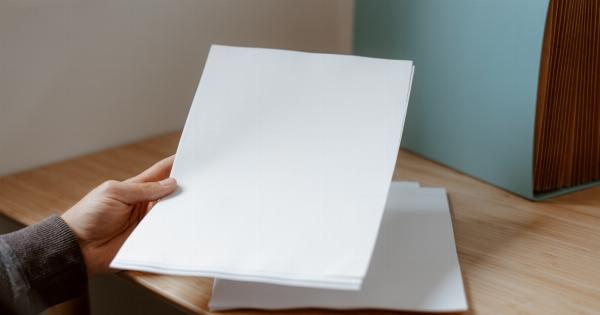Sleep is essential for the overall wellbeing of an individual. However, getting the right amount of sleep is equally important.
If you wake up sluggish, have difficulties concentrating or feel exhausted throughout the day, it could be because you’re not getting enough sleep. On the other hand, oversleeping can also cause health issues. In this article, we’ll discuss how one can determine their optimal sleep hours.
How Much Sleep is Required?
According to the National Sleep Foundation, the amount of sleep required varies based on age. Here, we specifically focus on adults. The standard guideline states that adults above the age of 18 should aim for 7-9 hours of sleep a night.
The Importance of Consistency
Getting the recommended amount of sleep consistently is important in maintaining a healthy lifestyle. We know how difficult it can be to keep up a routine, but it’s essential to try and maintain the same sleep schedule throughout the week.
A regular working schedule or school time can make it easier to maintain a consistent sleep schedule since it requires getting up at the same time each day. Try to keep to the same sleeping schedule, even on weekends.
This helps the body to establish a routine continuum. Individuals who often sleep way in and plan to compensate for their lack of sleep by sleeping late into the weekend can end up disrupting their internal clocks.
Not just this, but it may also cause them to have difficulties in falling asleep Sunday night.
Trial and Error
Although most people require about 7-9 hours of sleep, the exact number of hours that work for an individual can vary.
The question arises, how much sleep does one need? This depends on several factors such as genetics, lifestyle, stress, and activity level, among others.
The best way to determine the optimal number of hours of sleep for your body is to experiment with different sleep duration on different occasions. For example, start by sleeping for 7 hours each night over several days.
Check how you feel in the morning and throughout the day. Are you alert and active, or are you groggy and sluggish? You can increase your sleep level by half an hour for a few days and see how your body responds. Continue this process until you reach a point where your body feels well-rested.
Factors That Can Disrupt Your Sleep
Several external factors and habits can result in poor sleep. Eliminating these factors can help improve the efficiency and quality of our sleep. Here are some steps that you can take to improve your sleep:.
1. Blue Light Exposure
Exposure to blue light from electronic devices such as laptops and phones can make it harder to fall asleep. Try to avoid electronic screens at least two hours before bedtime.
Alternatively, you can use blue light filter apps to minimize screen blue light emission.
2. Caffeine
Caffeine is a stimulant that can lead to reduced sleep quality. Avoid consuming caffeine-containing drinks at least 6 hours before bedtime.
3. Daytime Napping
Although napping during the day can help some people stay alert and refreshed, it’s not a suitable option for everyone. Napping can disrupt sleep during established sleep hours.
Therefore, if you must nap, ensure that it’s not more than 30 minutes and at least 6 hours before your bedtime.
4. Irregular Sleep Schedule
The body requires regularity in sleep schedules to establish the body’s circadian rhythm. If you keep waking at different times or going to bed at varying times, it can disrupt your body’s internal clock, leading to reduced sleep quality.
5. Sleep Environment
The sleeping environment can also influence the quality of sleep. Avoid sleeping in areas with too much light or noise. A comfortable bed, temperature-controlled room, and good ventilation can help improve the quality of sleep.
Optimal Sleep Hours Conclusion
Getting the right amount of sleep is essential for leading a healthy lifestyle. While the recommended standard of 7-9 hours of sleep is ideal for most adults, the optimal number of hours required for an individual may vary.
Experimentation is key to finding out one’s optimal sleep hours. Additionally, avoiding several external factors such as blue light exposure, caffeine before bed, napping during the day, and irregular sleep schedules can enhance the experience of sleeping and lead to better sleep quality.




























